SARS-CoV-2 infection is associated with long-lasting neurological symptoms, although the underlying mechanisms remain unclear. Using optical clearing and imaging, we observed the accumulation of SARS-CoV-2 spike protein in the skull-meninges-brain axis of human COVID-19 patients, persisting long after viral clearance. Further, biomarkers of neurodegeneration were elevated in the cerebrospinal fluid from long COVID patients, and proteomic analysis of human skull, meninges, and brain samples revealed dysregulated inflammatory pathways and neurodegeneration-associated changes. Similar distribution patterns of the spike protein were observed in SARS-CoV-2-infected mice. Injection of spike protein alone was sufficient to induce neuroinflammation, proteome changes in the skull-meninges-brain axis, anxiety-like behavior, and exacerbated outcomes in mouse models of stroke and traumatic brain injury. Vaccination reduced but did not eliminate spike protein accumulation after infection in mice. Our findings suggest persistent spike protein at the brain borders may contribute to lasting neurological sequelae of COVID-19.
Persistence of spike protein at the skull-meninges-brain axis may contribute to the neurological sequelae of COVID-19
Nov 29, 2024|Cell Host & Microbe
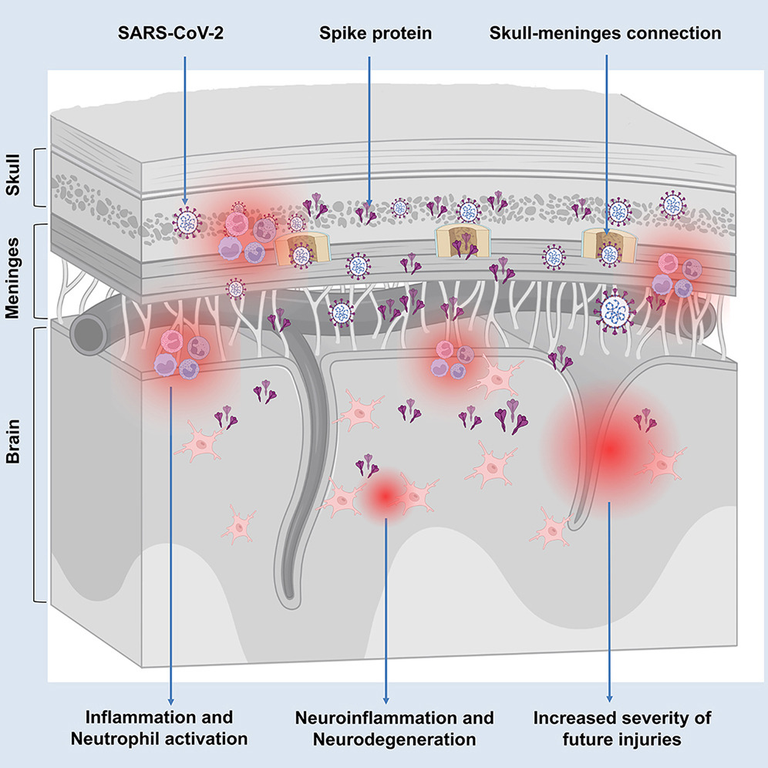
Related Content
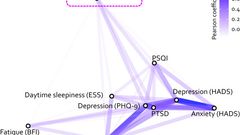
Long COVID is associated with severe cognitive slowing: a multicentre cross-sectional study
Background: COVID-19 survivors may experience a wide range of chronic cognitive symptoms for mont...
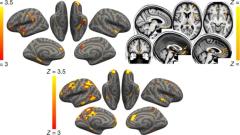
SARS-CoV-2 is associated with changes in brain structure in UK Biobank
There is strong evidence of brain-related abnormalities in COVID-19. However, it remains unknown ...
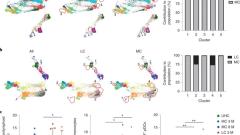
Immunological dysfunction persists for 8 months following initial mild-to-moderate SARS-CoV-2 infection
ABTRACT A proportion of patients surviving acute coronavirus disease 2019 (COVID-19) infection d...
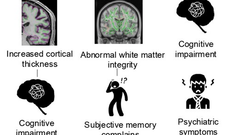
Structural brain changes in post-COVID condition and its relationship with cognitive impairment
It has been estimated that approximately 4% of individuals infected with SARS-CoV-2 will be diagn...
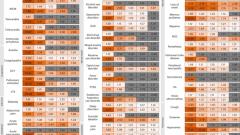
Postacute sequelae of COVID-19 at 2 years
Abstract Severe acute respiratory syndrome coronavirus 2 (SARS-CoV-2) infection can lead to post...